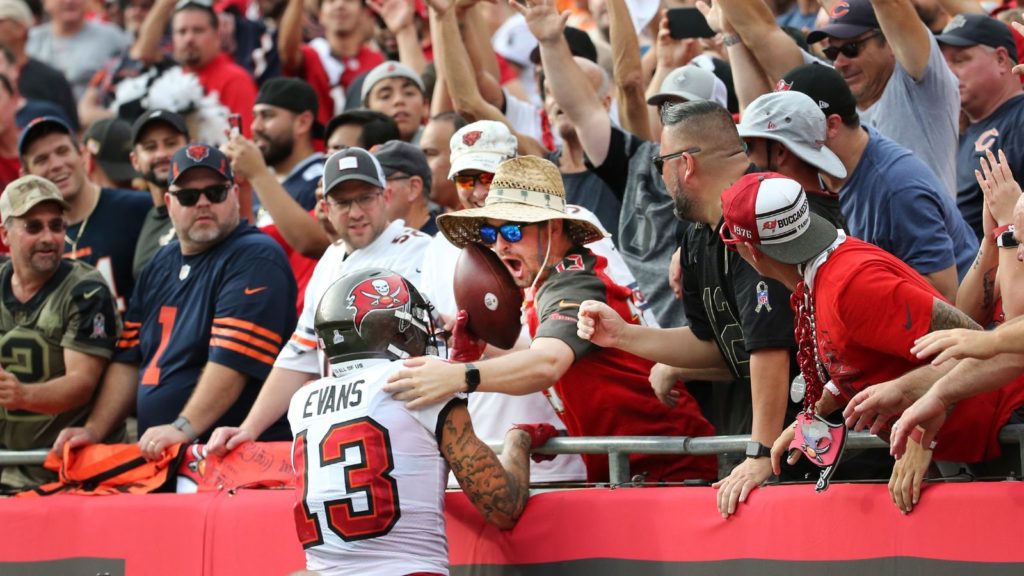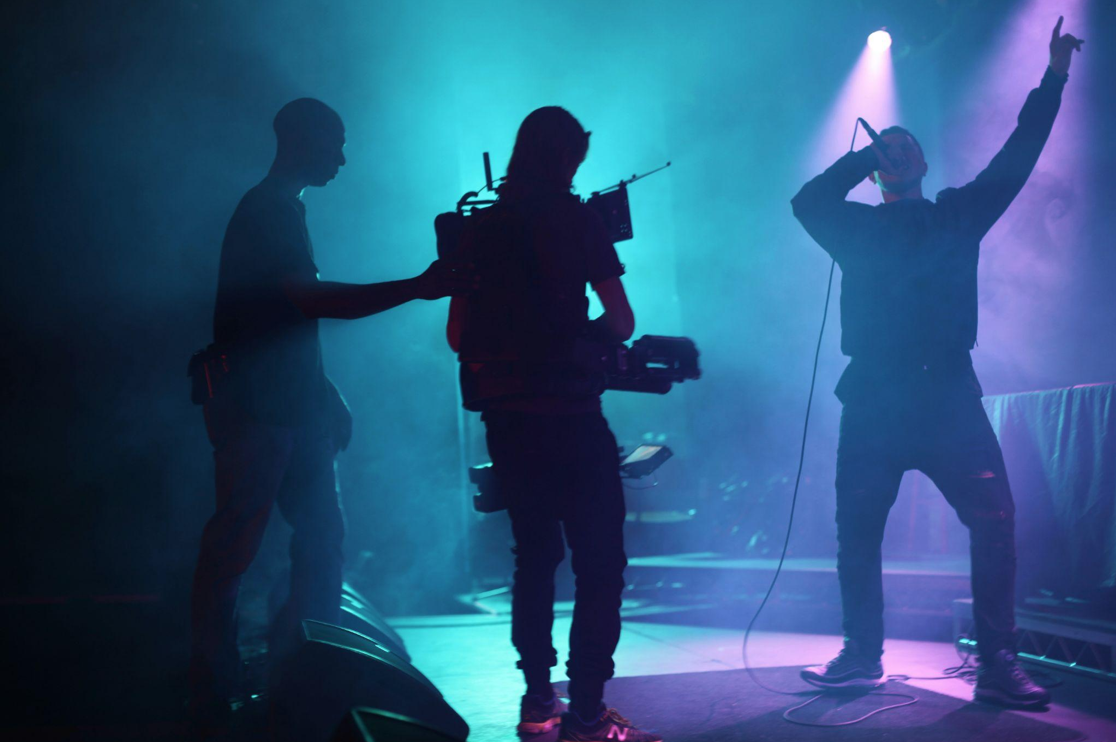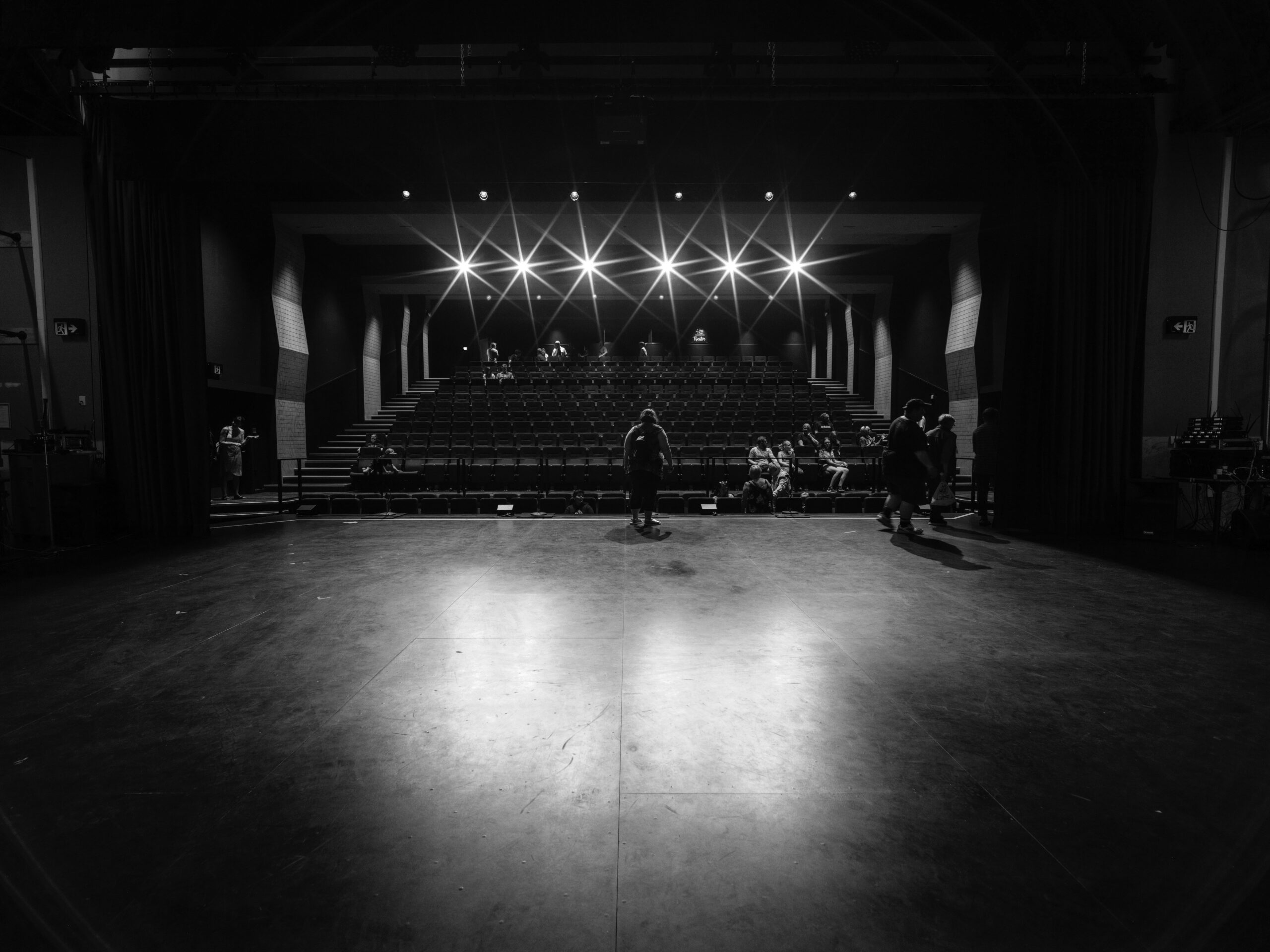
While the theory of economics can be studied in its raw form, there are applications of it that prevail beyond the fundamental notion of “economics.”1 A principal theory in economic models is that firms maximize profits in competitive markets.2 Similarly, in the sports world, such maximization may be accomplished through a coach maximizing his team’s probability of winning through sports trades.3 “A trade in sports is most commonly an exchange of ‘goods’ between two teams.”4 An example of a trade in sports is during the NFL Draft, where it is typical for teams to conduct trades with one another in exchange for rights to draft picks. “By definition, trade is supposed to be creating value by moving goods (draft picks) to the people (teams) that value them the most.”5 There is another form of trade in sports, however, that we do not see quite as often as the annual NFL draft pick. A fan, for example, who receives or catches a ball that is a token of an athlete’s milestone epiphany in his or her career, can be in an advantageous position to initiate the trade of that memorabilia in exchange for a substantial, monetary demand.
On Sunday, October 24, 2021, when the Tampa Bay Buccaneers played the Chicago Bears, Tom Brady threw his 600th career touchdown pass to wide receiver Mike Evans.6 This pass recognized Tom Brady as the only quarterback in NFL history to ever reach that milestone. Unbeknownst to Mike Evans at the time of catching Brady’s milestone pass, Evans quickly handed the ball to Tampa Bay fan in the front row behind the endzone, Byron Kennedy.7 Immediately after realizing that Brady might actually want the memorabilia attached to that milestone ball, security began “scrambling” to retrieve the ball from Kennedy.8 After a brief negotiation with a Tampa Bay team official, Kennedy agreed to return the ball in exchange for two signed jerseys and a helmet from Brady, a signed Evans jersey and his game cleats, a $1,000 credit at the Buccaneers’ team store, and two season passes for the remainder of this season as well as next season.9 Additionally, Kennedy was gifted a Bitcoin currently valued at $63,000 from Brady and some additional cryptocurrency worth around $30,000 from Rob Gronkowski (who is a tight end for the Tampa Bay Buccaneers) and World Wrestling Entertainment Superstar Mojo Rawley. 10
Postgame, Kennedy, who allegedly was “hesitant to give up the ball” was dismayed to learn that ball’s value is estimated to be worth a minimum of $500,000 according to Ken Goldin, the founder of Goldin Auctions.11 “Given Brady is the only person to throw 600 touchdowns, whereas there are 28 members of the 500 home run club in the universe, this puts Brady’s ball in a stratosphere all to itself.”12 Had Kennedy known at the time that the milestone ball’s value could be worth far north of $500,000, he likely would not have settled with the exchange immediately. After all, when Tom Brady threw his first career touchdown pass on October 14, 2001, Terry Glenn threw the ball into the stands and the fan who acquired that ball sold it almost 20 years later for more than $425,000.13
Now, the question presented is: Can a case be made for Kennedy to have the ball returned? Since Byron Kennedy may have held more bargaining power over Tom Brady and his 600th-touchdown ball than he thought, was the deal he “negotiated” not in good faith?14 Was Kennedy compensated fairly?15 Here, there are a handful of factors that come into play. Before figuring out whether a negotiation was conducted in good faith or be able to recover for breach of the covenant of good faith and fair dealing, the aggrieved party must first establish the existence of a binding contract when the challenged conduct took place.16 If the trade between Kennedy and Brady is deemed a contract, it can be argued that this contract should be void.17 While Kennedy was unlikely considering the legal complexities of what constitutes a legitimate transfer of property rights, he was nonetheless tangled in a shocking situation and was quoted saying “I was hesitant to give it back,” yet was willing to do so because of “how much it meant to Tom.”18 This comment, however, may be evidence that Kennedy felt coerced into the agreement and could be filed under an “undue influence” claim.19 In contract law, “[t]he use of undue influence by one party over another puts the free will of one of the parties entering the contract into question, and therefore leads to the contract being unenforceable and voidable by the victim party.”20 Another allegation Kennedy may assert is that this is a case of an “unconscionable contract,” which is defined as “is a contract that is so severely one-sided and unfair to one of the parties that it is deemed unenforceable under the law.” 21 Certainly, what Kennedy received in exchange for the historic ball valued over $500,000, a potentially life-changing sum of money, could possibly qualify as one-sided. 22 Although unenforceability of a contract commonly deals with ill-intent or bad faith, sometimes an honest mistake could render a contract unenforceable.23 A unilateral mistake occurs when only one party has a mistaken belief with regard to the subject matter or the terms contained in the contract agreement.24 Thus, a third argument that Kennedy can make is that “this was simply a mistake . . .”25 Due to the fact that Kennedy was not aware of the estimated value of the milestone ball at the time the deal was conducted, he may be able to claim that this is a voidable contract.
Despite the various arguments Kennedy could make in order to potentially retrieve the irreplaceable football that marks Brady’s historical milestone, it is unfortunate for Kennedy, as there are other factors that weigh against the finding of a voidable contract. First, there is a debate about whether a contract exists at all.26Kennedy agreed to surrender possession of the ball in exchange for a package of tickets, memorabilia, and cryptocurrency.27 Does this trade meet the defining elements of a contract?28 Second, did Kennedy have any legal right to the ball in the first place? Kennedy may argue that due to “the longstanding practice, dating back at least to the 1920’s, of allowing fans to keep balls hit into the stands at professional baseball games, the ‘right’ to keep such balls, [Kennedy] would argue, has become an implicit part of the contract between the team owner and the ticket buyer.”29 Although Kennedy may point out the fact that “the online policies for [Tampa Bay Buccaneers] game day and season pass tickets are both are silent on the issue of materials that end up in the stands, whether thrown or kicked or gifted,” there is a high probability that there is a clause in the fan conduct agreement which suspends fans’ rights to items received from an athlete at a game.30 While reasonable minds may differ on whether Kennedy would have been legally compelled to return the free-given gift that is a hallmark of Brady’s career, the reality is that “Kennedy got some stuff and the illusion of actual money, Brady got his ball, and someone in the Brady household got one more thing to dust on a high shelf—all because Mike Evans didn’t read the pregame media notes and decided to be a sport to some anonymous guy in a game that will be neither noted nor remembered.”31 Frankly, the clever action would have been to instantly leave the stadium the moment Kennedy received the ball from Evans while also taking measures to establish “a clear record of custody for future authentication purposes.” 32 Florio, supra note 13. Alas, although his pocket will not be as full as his bargaining power may have leveraged him, the story of Tom Brady’s 600th touchdown pass cannot be told without the story of Byron Kennedy. For Kennedy, the experience of not only touching Brady’s milestone ball, but also witnessing the achievement eclipsed any large sum of money and evidently standing for something other than greed was his own reward.
Courtney Leon is a Second Year Law Student at the Benjamin N. Cardozo School of Law and a Staff Editor at the Cardozo Arts & Entertainment Law Journal. Courtney is interested in corporate, real estate, entertainment, fashion, intellectual property, and privacy law. Courtney is also Public Relations Director Fashion Law Society, a Teaching Assistant for Lawyering & Legal Writing, and a member of the Cardozo Mediation Clinic. Courtney is presently interning with Pillinger Miller Tarallo, LLP and will be a 2022 summer Real Estate Tax Associate at PricewaterhouseCoopers (“PwC”).
- Jackson Thomas, Economics of Sports: In the Scope of the NFL Draft, Medium: The Sports Scientist (May 3, 2020), https://medium.com/the-sports-scientist/economics-of-sports-in-the-scope-of-the-nfl-draft-f49443f1f598 [https://perma.cc/N6KU-Z9PA].
- Kristie M. Engemann & Michael T. Owyang, A Winning Combination? Economic Theory Meets Sports, Fed. Rsrv. Bank of St. Louis (Jan. 1, 2009), https://www.stlouisfed.org/publications/regional-economist/january-2009/a-winning-combination-economic-theory-meets-sports [https://perma.cc/AXU9-4LPG].
- Id.
- Rami Lavi, The Art of the Trade: Brady #600, Conduct Detrimental (Oct. 25, 2021), https://www.conductdetrimental.com/post/the-art-of-the-trade-brady-600 [https://perma.cc/T89C-MG2S].
- Thomas, supra note 1.
- Ryan Gados, Tom Brady 600th TD Ball Worth Pretty Penny, Fan Made Bad Deal, Memorabilia Auction Founder Says, FOX Business (Oct. 24, 2021), https://www.foxbusiness.com/sports/tom-brady-600th-td-ball-fan-made-bad-deal [https://perma.cc/5K9Y-943T].
- Id.
- Lavi, supra note 4.
- Bryan DeArdo, Tom Brady’s 600th TD Pass, How Much Did Bucs Fan Squander By Giving Up Historic Football?, CBS Sports (Oct. 27, 2021 11:40 A.M.), https://www.cbssports.com/nfl/news/tom-bradys-600th-touchdown-pass-how-much-did-bucs-fan-squander-by-giving-up-historic-football/ [https://perma.cc/FDC6-NPAM].
- Rachel West, Watch: Bucs Complete Swap with Byron Kennedy for Tom Brady Ball, Tampa Bay Times (Nov. 2, 2021), http://www.tampabay.com/sports/bucs/2021/11/01/video-bucs-complete-swap-with-byron-kennedy-for-tom-brady-ball/ [http://perma.cc/C9UT-D6N3].
- DeArdo, supra note 9.
- Id.
- Mike Florio, Could Buccaneers Have Compelled Return of Brady‘s 600th Touchdown Ball?, NBC Sports: ProFootballTalk (Oct. 25, 2021, 8:51 P.M.), https://profootballtalk.nbcsports.com/2021/10/25/could-buccaneers-have-compelled-return-of-bradys-600th-touchdown-ball/ [https://perma.cc/VAS3-46SG].
- Lavi, supra note 4.
- Adam Schultz, Tom Brady Fan and Buccaneers Finally Come to an Agreement Over QB’s 600th Touchdown Ball, Sportskeeda (Oct. 26, 2021), https://www.sportskeeda.com/nfl/news-brady-fan-come-agreement [https://perma.cc/5J6K-62GN].
- Mass. Eye & Ear Infirmary v. QLT Phototherapeutics, Inc., 412 F.3d 215, 230 (1st Cir. 2005) (stating “In other words, the implied covenant of good faith and fair dealing governs conduct of parties after they have entered into a contract; without a contract, there is no covenant to be breached.”).
- Lavi, supra note 4.
- Florio, supra note 13.
- Lavi, supra note 4.
- Undue influence, Cornell L. LII, https://www.law.cornell.edu/wex/undue_influence [https://perma.cc/5T85-A8GD] (last visited Nov. 2, 2021); see also In re Loftin’s Est., 285 N.C. 717, 722, 208 S.E.2d 670, 674–75 (1974) (“Undue influence is a fraudulent influence over the mind and will of another to the extent that the professed action is not freely done but is in truth the act of the one who procures the result.”).
- Lavi, supra note 4; see also What Is an Unconscionable Contract?, Legal Match, https://www.legalmatch.com/law-library/article/what-is-an-unconscionable-contract.html (June 1, 2021) [https://perma.cc/Q6PY-AVMF].
- Lavi, supra note 4.
- Kevin O’Flaherty, When Is A Contract Unenforceable? | Illinois Contract Defenses Explained, O’Flaherty Law (Nov. 16, 2020), https://www.oflaherty-law.com/learn-about-law/when-is-a-contract-unenforceable [https://perma.cc/5PTJ-3F9B].
- Mistake And The Ability To Avoid The Agreement, Stimmel Stimmel & Roeser, https://www.stimmel-law.com/en/articles/mistake-and-ability-avoid-agreement [https://perma.cc/9APD-4QH3] (last visited Nov. 3, 2021).
- Lavi, supra note 4.
- Id.
- West, supra note 10.
- Lavi, supra note 4.
- J. Gordon Hylton, The “Who Owns the Baseball” Issue Just Will Not Go Away, Marq. Univ. L. Sch. Blog: Sports & L. (Oct. 8, 2009), https://law.marquette.edu/facultyblog/2009/10/the-who-owns-the-baseball%E2%80%9D-issue-just-will-not-go-away/comment-page-1/ [https://perma.cc/NZ2L-CSFZ].
- Lavi, supra note 4; see also Florio, supra note 13.
- Ray Ratto, Bucs Fan Trades Something Tom Brady Wanted For Used Clothes And Crypto, Defector (Oct. 26, 2021), https://defector.com/bucs-fan-trades-tom-brady-600th-touchdown-pass-for-used-clothes-crypto/ [https://perma.cc/7NZU-TY7S].



